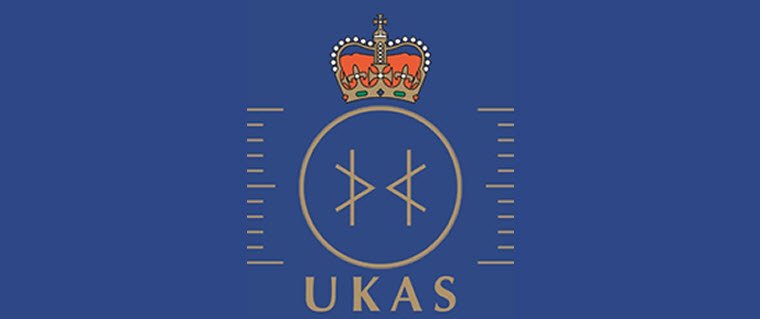EQMS Blog

Why You Should Get A UKAS Management System Certification
The concept of a management system means a basis of processes and methods used to make sure that an entity can achieve all necessary responsibilities in order to realize its objectives. We can observe a growing trend in a number of business organizations, from various sectors including service, manufacturing and engineering sectors which are on the lookout for having their management systems certified by a third party. Management systems certification can establish the proficiency of management and workforce, objectivity and the prevention of conflicts of interest whether for encouraging shareholder confidence, responding to customer demand, or pursuing internal improvement of the business.
What is UKAS
In the United Kingdom, UKAS (United Kingdom Accreditation Service) is considered as the national accreditation body. An organization can spend substantial amount of time, effort and resources during the process of certification as it may be persuaded by its significance as a business tool and for the resulting business benefits it can get. However, in the absence of a UKAS-accredited certification body, the certification advantages can prove to be inadequate as compared to expectations due to it not being a UKAS management system. Your potential customers may be unconfident regarding our certification credibility and you may find yourselves experiencing from internal incompetence as our management systems have not been recognized as unfitting to your needs. UKAS accredits around 150 certification bodies in the United Kingdom, covering from small professionals to large, organizations with internationally recognition with a huge workforce.
Why Is There a Need for UKAS Management System Certification
UKAS is acknowledged by the government, to evaluate in contrast to those standards that have got international recognition, organizations that offer certification, testing, and assessment and regulation services. It must be kept in mind that UKAS is not a regulator for the reason that it does not have any legitimate or regulatory prosecution authorities. Nevertheless, UKAS does have an ‘oversight’ role and make efforts to confirm that those organizations which are accredited by it implement the relevant accreditation standards at international level. UKAS accredited certification, testing and standardization and scrutiny decreases the requirement for suppliers to be evaluated by all of their customers. UKAS’ has also got its connections in those groups that are known at international level, for example the IAF, EA, and ILAC which presents mutual recognition. As a result, it decreases the need for numerous valuations of suppliers and is quite helpful in decreasing trade barriers.
When an organization picks a UKAS-accredited supplier, it does not only provides assurance regarding the fact that they are receiving the most suitable service for their needs but they will also learn that the UKAS ‘symbol’ on an organizations documentation carries with it significant recognition for a business at national and international level.
UKAS has firm, clear and repeatable evaluation measures relevant to all kinds of conformity valuation, and by collaborating with UKAS can offer many plus points. First of all, it develops business and increases public trust on the organization. Moreover, it lessens the requirement for central and local government to hire the service of their own professional evaluation personnel. Government can also have assurance through accreditation as they count on commercial providers of and inspection and assessment services. Likewise, it allows for innovation in the public as well as private sectors.
From a business point of view there are lots of benefits by getting a UKAS management system certification for an organization. It is common fact that organizations use independent assessments either by their own choice e.g. to decrease the risk of product failure or as a result of lawful requirements like health and safety rules. In most cases, these assessments are standardization of equipment, testing of product, equipment inspection and management systems certification. A critical tool for decision-making and risk management is the choosing an accredited organization. Companies can save their time and resources by picking an accredited and consequently skilled supplier. For reducing product failure, limiting down time and controlling production costs there are dependable tests, measurements and assessments that are carried out meeting the requirements of the best practices. There is no doubt that accreditation to standards recognized at internal level can offer a competitive advantage and enable entrance to export markets within the EU and outside. Indeed, using an accredited body to perform an assessment independently helps in establishing persistence in the occurrence of any sort of legitimate action.
If you are interested in implementing an ISO management system and get a UKAS accredited certification, then contact us for a free no obligation meeting with one of our ISO consultants.

Request a free consultation
Contact us to discuss your needs and see how we can support to reach your goal.

Recent posts

In today's digital age, businesses are constantly exposed to various cyber threats. As a result, companies must adopt a proactive approach to cybersecurity to prevent data breaches, theft, and other...

Quality management systems are essential in ensuring that organisations can deliver quality products and services consistently. The International Organisation for Standardization (ISO) developed the ISO 9001 standard to help organisations...

ISO 14001 is a globally recognised standard for environmental management systems (EMS) that helps organisations manage their environmental impact and improve their sustainability performance. Obtaining this certification demonstrates a company's...
Just a Few of Our Clients
Request a Free Consultation
Contact us to discuss your needs and see how we can support to reach your goal.















